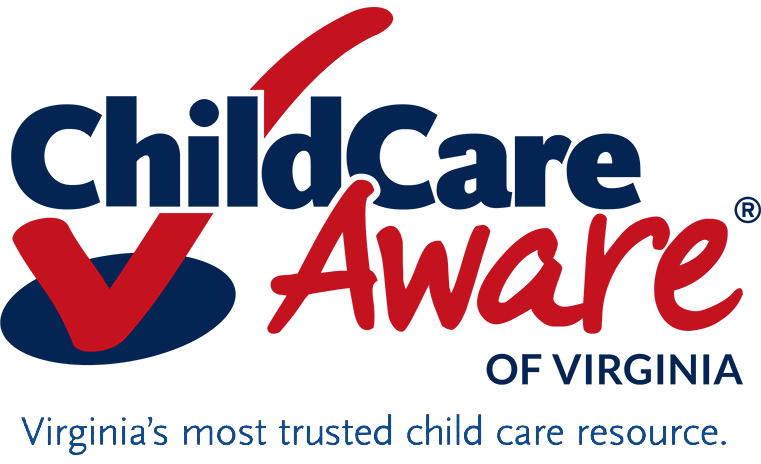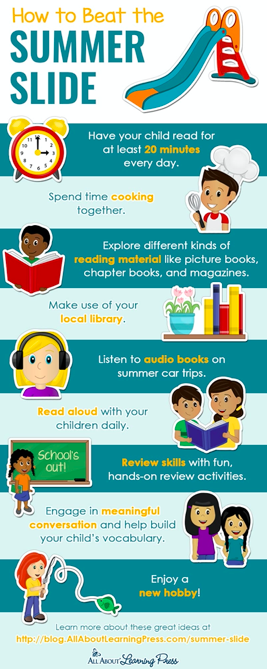While summer is typically associated with learning loss, we challenge you to make this is summer full of fun opportunities to keep the gears turning during the summer break. School is out, but the learning continues!
The “summer slide” is a term that refers to a decline in reading ability and other academic skills that can occur over the summer months when school is not in session. This can create a delay during the first 2 months of school since teachers have to reteach previous information to help kids get back on track. It is important that we keep our children’s academic skills polished when school is out, so they return to school ready to build on their skills and knowledge instead of playing catch up. COVID-19 has changed how we go about our daily lives—especially when it comes to how our children learn. With widespread school closings, students and families are challenged to continue learning in a very different environment. However, parents and educators are still finding creative and innovative ways to help students stay on track.
Although we may not be able to travel as much this summer, we can still make the best of the time we have at home and make learning fun. Summer break provides the perfect environment to get outside, enjoy the fresh air, reconnect with your family and have fun in the comfort of your own home! Whether you’re prepping your little one to transition to the next grade level or just trying to find things to occupy their busy minds, these science experiments are easy, inexpensive and a lot of fun for kids of all ages. Who knows, you may end up learning something too!
Tornado in a bottle– With only a few simple supplies, you can create your own tornado in a bottle. Add glitter, food dye, or lamp oil to the bottle to make your weather lesson even more exciting!
Gooey slime– Your child will truly feel like a scientist with this experiment. Mix glue, water, food coloring, and borax, to create a gooey slime!
Rainbow in a cup– This experiment takes advantage of density to create a rainbow in a cup. An interesting science experiment using supplies you probably already have in your home!
Become nature experts during your next family walk. Check out the leaves from different trees around your neighborhood or even hunt for bugs!
Cooking is science too! Get your little one involved with preparing dinner. We’ve talked about the importance of family meal time and a balanced diet, but meal time also provides an opportunity for learning to take place.
Children are naturally curious and eager to discover the world. You can continue igniting their creative minds with hands-on science experiments that are sure to blow their young minds. These simple science experiments are parent, teacher, and kid approved for your future scientists.
Additional Resources:


